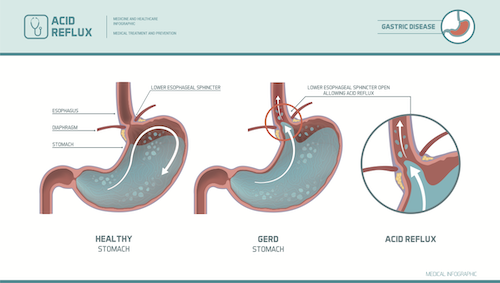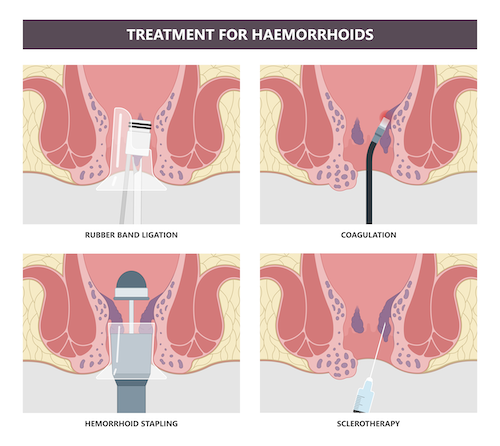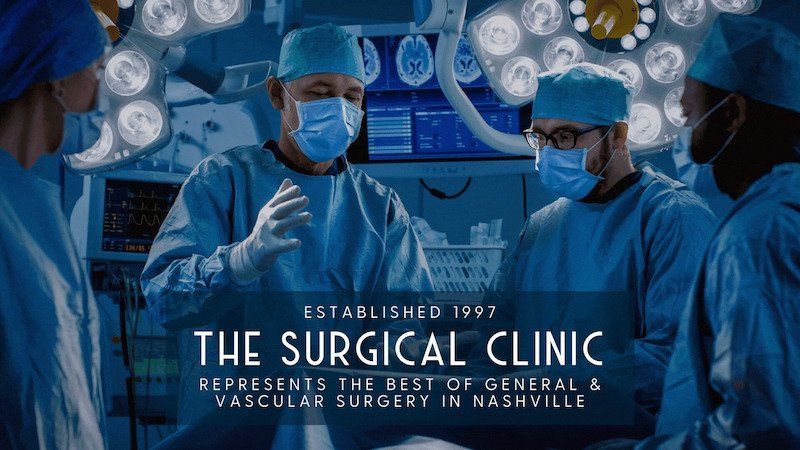Even though general surgery covers common ailments, it is still considered a specific type of surgical discipline. General surgery includes a core knowledge of anatomy, physiology, metabolism, immunology, nutrition, pathology, wound healing, and other areas common to all surgical specialties. In laymen’s terms, general surgeons treat diseases related to the abdomen, breast, head and neck, blood vessels, digestive tract, injuries, deformities, and other conditions.
Whether general surgery or specialized surgery, we have a team of surgeons with a diverse set of skills, specialties, and experience. Due to the many types of conditions that we treat, some of our surgeons treat more specialized conditions, and some have training in emerging surgical techniques. While our surgeons are prepared to treat rare conditions, our surgical practice would be remiss if we did not care for the common ailments and conditions best healed through general surgery.
Below is a list of the most common types of general surgery that our general surgeons in Nashville treat on a day-to-day basis.
Focus Areas of General Surgery
General surgeons go through five years of training to learn the entire surgical process from start to finish. As a part of this training, they become familiar with the nine standard areas of surgery, as follows:
- Abdomen
- Skin and other soft tissues (such as breasts)
- Endocrine system
- Head and neck
- Heart and blood vessels
- Digestive tract
- Surgical cancer treatment
- Traumatic injury management
- Critically ill patients needing surgical intervention
Studying these nine components of general surgery includes multiple commonly performed surgical procedures to help one or more areas listed above. General surgeries can be categorized into the nine areas based on the location or purpose of the surgery. Let’s break down the most common general surgeries across the body.
Abdomen Surgeries
Appendectomy
When the appendix becomes blocked and ruptures, it puts the body at risk for severe infections and causes significant pain. The only way to prevent harmful and even deadly infection from appendicitis is through appendix removal surgery, or appendectomy.
Depending on the needs of the patient, our general surgeons will perform either an open appendectomy or a laparoscopic appendectomy.
Open appendix removal surgery typically requires a slightly longer hospital stay after the procedure. An incision is made in the abdomen and the appendix is removed.
A laparoscopic procedure allows the patient to recover more quickly due to smaller incisions and precise appendix removal. 1 to 3 small cuts are made in the abdomen and a small camera and surgical tools are inserted. The appendix can be removed this way through one of the incisions.
Exploratory Laparotomy
When patients have abdominal pain, but there is no immediate cause, a general surgeon can perform an exploratory laparotomy to investigate the source of pain. This procedure is performed by making an incision in the middle of the abdomen so the surgeon can clearly and directly inspect the patient’s organs. The incision for a laparotomy is usually the length of the belly, but there will only be one incision made.
Alternatively, a surgeon can perform an exploratory laparoscopy. This minimally invasive procedure uses tiny incisions and a laparoscope to inspect the internal organs. Healing from this procedure usually takes much less time than a laparotomy.
Hernia Surgery
A hernia occurs when the lining that protects internal organs and keeps them in place develops a tiny hole. The organ next to the fascial hole will then be squeezed through the tissue and cause a slight bulging which is visible through the skin. Overtime, hernias become more and more painful and cause more problems the longer they go without being addressed.
Hernias can be resolved through several surgical techniques. Traditional hernia repair involves suturing the abdominal wall to secure the internal organs. Laparoscopic groin hernia repair uses a procedure called transabdominal preperitoneal (TAPP) surgery. This procedure uses a laparoscope inserted in the abdomen and through the peritoneum to access and repair the hernia.
Another type of groin hernia repair is totally extraperitoneal (TEP) surgery. This means the hernia repair is performed without puncturing the lining that encases the internal organs, called the peritoneum.
Liver Surgery
At The Surgical Clinic, we treat liver cancer and liver disease through liver resectioning surgery. The earlier the disease is detected, the better the patient’s chances for successful treatment and recovery. The liver is a vital organ, but it can still function if the diseased sections are removed and the rest of the liver is healthy.
Consult with your doctor and your surgeon to find out if this surgery is the right treatment for you.
Pancreas Surgery
General surgeons can treat conditions like pancreatitis, pancreas cancer, and benign pancreas tumors with pancreas surgery. There are several forms of pancreas surgery including the Whipple procedure, laparoscopic pancreas surgery, pancreatectomy, distal pancreatectomy, segmental pancreatectomy, and total pancreatectomy. Your surgeon will recommend which procedure will best treat your conditions during the testing and consultation period of your treatment.
Splenectomy
The spleen, like the appendix, carries a general reputation as a useless organ, but it is anything but useless. This important organ actually supports the body’s immune system and helps purify blood. However, the spleen can become damaged or diseased. If non-surgical treatment is not successful, the spleen will have to be removed through splenectomy. Before surgery, one of our general surgeons will work with your doctor to determine if spleen surgery is right for you.
Skin and Soft Tissue Procedures
Breast Surgery
Breast cancer is still one of the most common types of cancer in the United States, and mastectomy is still one of the most reliable methods for treatment. If you’ve been diagnosed with breast cancer, our team of surgical oncologists in Nashville will work closely with you to create a personalized plan of attack to remove and treat your cancer.
However, surgical support does not go away after you’ve entered remission. Our network of board-certified surgical specialists includes a group of renowned plastic and reconstructive surgeons. Should you choose to pursue breast reconstruction surgery, our Nashville plastic surgeons will help you decide which breast reconstruction surgery is right for you.
The Most Common Types of Breast Reconstruction Surgery
- Silicone Gel Implant Reconstruction (Gummy Bear Implants)
- Saline-Filled Implant Reconstruction
- Diep Flap Reconstruction
- Tram Flap Reconstruction
Lipoma
A lipoma is a lump of fat cells that forms under the skin and causes a visual bulge on the exterior of the skin. Lipomas can be mistaken for cancerous growths, but they are not cancerous nor harmful. Some may cause pain if they form above a nerve. If you want a lipoma removed it can be done through excision surgery from a general surgeon or one of our board-certified plastic surgeons in Nashville.
Plastic Surgery
Our Nashville plastic surgeons provide all types of plastic and reconstructive surgeries for patients in the Middle Tennessee area. Most commonly, our plastic surgeons perform breast surgery and breast reconstruction surgery after mastectomy. Additionally, our surgeons can perform facial surgery, nose surgery, and skin grafts to improve a patient’s appearance after traumatic injuries.
Finally, our board-certified plastic surgeons also offer a wide range of aesthetic surgeries to help our patients improve their aesthetic appearance.
Mole Excision
Precancerous moles are easy to detect and easy to remove through excision. Our general surgeons are trained and experienced at identifying precancerous moles before they develop into full tumors. The earlier these types of moles are detected, the better. We recommend annual skin cancer screenings for anyone over the age of 50 in order to successfully prevent more cases of skin cancer.
Podiatry Related Procedures
While not as involved as internal surgery, our podiatry doctors and surgeons often perform procedures such as ingrown toenail removal, toenail fungus cleanings, and overgrown toenails (Ram’s horn nails). Additionally, our Nashville podiatrists can help diagnose and treat corns, calluses, bunyons, and even plantar fasciitis.
Endocrine Surgery
Conditions such as hyperthyroidism, hypothyroidism, Graves’ disease, and other endocrine conditions can be treated with endocrine surgery. Our general surgeons in Nashville, Murfreesboro, and surrounding areas offer both traditional and innovative endocrine surgery.
At TSC Rutherford, we offer minimally invasive robotic thyroid and parathyroid surgery. These procedures minimize recovery time by making small incisions and using robotic devices to remove nodules and malfunctioning glands.
Our surgeons at TSC Rutherford also perform cutting-edge transoral thyroid surgery and transoral parathyroid surgery. These procedures are essentially scarless thyroid and parathyroid procedures. They are performed by making a small incision inside of the patient’s mouth and then using a laparoscopic instrument to remove the thyroid, either partially or completely, or the parathyroid glands. A small scar will be left on the inside of the mouth under the bottom lip, but there will be no visible external scarring on the neck as with traditional thyroid surgery.
Head and Neck
Esophageal Surgery
Surgery on the esophagus is used to triage acid reflux, GERD, high-grade dysplasia, and esophageal cancer. Generally speaking, these procedures are performed using minimally invasive laparoscopic surgical tools to minimize the patient’s recovery time.
Most esophageal surgeries focus on removing the damaged or diseased portions of the esophagus and then reconnecting the upper section of the stomach (fundus) to the remaining esophagus.
Patients are carefully evaluated before undergoing any type of esophageal surgery due to their classification as a major operation.
Heart and Blood Vessels
Vascular Surgery
Our vascular and endovascular surgeons at The Surgical Clinic have years of specialized experience diagnosing and treating vein disease and related conditions.
The Most Common Procedures Our Surgeons Perform
- Carotid artery surgery
- Varicose vein surgery
- Spider vein treatments
- Peripheral artery disease (PAD)
- Venous angioplasty and stenting
- Transcarotid artery revascularization
Digestive Tract
The most common procedures our general surgeons perform involving the upper digestive tract are gallbladder removal and GERD/acid reflux surgery.
Gallbladder Surgery
The gallbladder, most often, becomes blocked or inflamed due to the formation of gallstones that are too large for the gallbladder to pass naturally. As the amount of gallstones increases, the patient will begin to experience greater pain, and increasingly aggravated symptoms until the stones are broken up, or the gallbladder is removed.
Our general surgeons perform both open gallbladder removal surgery and minimally invasive laparoscopic gallbladder surgery in Nashville and the Greater Nashville Area.
GERD Surgery

Gastroesophageal reflux disease (GERD), is a condition that causes chronic acid reflux or heartburn. Typically this is due to a malfunction of the lower esophageal sphincter (LES). When the LES functions properly, it prevents stomach contents from overflowing into the lower esophagus. However, when it does not function properly, stomach acid will backwash up into the esophagus and cause heartburn.
Our team of Nashville general surgeons are practiced at several surgical procedures that will restore function to the LES and provide relief for GERD symptoms.
Colon Surgery
Medically referred to as colectomy or colon resectioning, focuses on removing either part or all of your colon in order to prevent or address harmful medical conditions. Our general surgeons typically perform colon resectioning for patients who are at risk for, or who experience one of the following medical concerns:
- Bowel Obstructions
- Colon Cancer
- Colorectal Cancer
- Crohn’s Disease
- Diverticulitis
- Ulcerative Colitis
Colon resectioning can also be used to remove entire sections of the colon where several precancerous colon polyps have developed.
Resectioning can be performed in either open surgery or laparoscopic surgery.
Hemorrhoids

Most hemorrhoids are treatable with topical medications, pain relievers, dietary supplements, and self-care. However, some hemorrhoids will not go away on their own. Depending on the nature and severity of the hemorrhoids, a surgeon will recommend surgery to either remove or repair the hemorrhoids.
Our general surgeons use minimally invasive surgical procedures to remove internal and external hemorrhoids through the following:
Types of Hemorrhoid Surgery
- Banding
- Infrared Coagulation
- Sclerotherapy
- Surgical Suturing
- Surgical Staples
To learn more about hemorrhoid treatment click here.
Common Surgical Methods for General Surgery
Depending on which procedure you are having performed and your health factors, your surgery can be performed using different surgical methods to try to reduce your recovery time. Minimally invasive techniques have been improved as new technology has made it easier to perform surgery without requiring large open incisions.
Laparoscopic Surgery
During laparoscopic surgery, a general surgeon uses small keyhole incisions to place a laparoscope, a small camera, to see the surgical field. Small instruments are inserted through another small incision to perform the surgery. This method can be used for appendectomies, gastric bypass surgery, and more.
Laparoscopic surgery is a category of general surgeries that use laparoscopes to perform minimally invasive surgeries in Nashville, Tennessee. As mentioned earlier, exploratory laparotomy can be performed with a laparoscope. Additionally, our surgeons use laparoscopic techniques to improve appendectomies, gallbladder removal, colon surgery, hernia repairs, and GERD repairs through Nissen Fundoplication.
Endoscopy
Unlike other surgeries, endoscopies do not require a surgeon to cut through your skin. A general surgeon navigates a flexible tube equipped with a camera through either the throat or the anus to use long tools to perform the procedure. Endoscopies can be used to perform biopsies, remove tumors, and more.
Robotic Surgery
Robotic surgery is a form of laparoscopic surgery that has a twist: the inclusion of robotic arms. General surgeons can use robotic arms to perform surgeries from a console within the operating room through the same keyhole incisions as laparoscopic procedures. Depending on where a general surgeon studies, robotic surgery may be included in their training, but robotic surgical fellowships can offer specific training if a doctor needs to learn.
Visit The Surgical Clinic to Learn More About General Surgery in Tennessee
If one of these procedures is relevant to you, schedule a surgical consultation to learn more about the procedures that can treat your medical needs. Our Nashville general surgeons are committed to excellent service and will help you understand every step of the surgical process. Our surgical centers are also spread throughout Middle Tennessee, so you should have a surgical center conveniently placed near you.
General surgeons in Greater Nashville

Dr. John Boskind
General Surgeon
MT. JULIET

Dr. Mariana Chavez
General Surgeon
Downtown

Dr. Patrick Davis
General Surgeon
SOUTHERN HILLS

Dr. Gretchen Edwards
General Surgeon
DOWNTOWN

Dr. Alex Fruin
General Surgeon
MT. JULIET

Dr. James Griscom
General Surgeon
NASHVILLE

Dr. Mark Hinson
General Surgeon
COLUMBIA

Dr. George Lynch
General Surgeon
NASHVILLE

Dr. Clinton Marlar
General Surgeon
SKYLINE

Dr. Willie Melvin
General Surgeon
SMYRNA

Dr. Chad Moss
General Surgeon
COLUMBIA

Dr. William Polk
General Surgeon
NASHVILLE

Dr. Drew Reynolds
General Surgeon
SAINT THOMAS WEST

Dr. Joshua Taylor
General Surgeon
SMYRNA

Dr. Davidson Oxley
General Surgeon
COLUMBIA

Dr. Tyson Thomas
General Surgeon
SAINT THOMAS WEST

Dr. John Valentine
General Surgeon
HENDERSONVILLE

Dr. Patrick Wolf
General Surgeon
SAINT THOMAS WOLF

